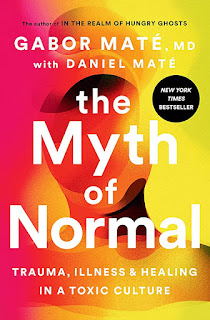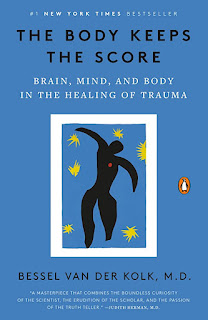‼️ No Excuses!: The Power of Self-Discipline by Brian Tracy ‼️
10/∞
Rating: ⭐️⭐️⭐️⭐️⭐️
👉 Buy this book! 👈 through my link and help me build this website! 😊
“It has been said that if people put as much energy into achieving their goals as they spend making up excuses for failure, they would actually surprise themselves. ”
Do you agree with this statement? Do you make excuses? If so, how often?
The more books on personal development and on how to become rich I read the more I see that many of their taught principles are actually the same. For example, in this book I found references to Kyiosaki’s “Rich dad poor dad” and to Robin Sharma’s “The 5 Am club.” E.g.: No matter what, pay yourself first. 80/20 rule etc.
Those books taught me many new vital things that school never taught me. The most important thing I have realised is that income increase does not help and that to have a well paid job is the only way to have a good life.
I liked the comparison Tracy made about two neighbours living on the same street. He said, that one house could be financially secure and financially independent while the other could be drowning in debt and never have enough money.
I think this scenario is very common and it stresses out the importance of investing. Tracy says that if everybody would invest between 10 to 20% of their income since they started their first job, they would be millionaires by the age they retire.
I also liked a part of the book where Tracy speaks about how to get promoted, although this scenario would be hard to apply in companies like Amazon where you are drowning in tasks all day long. Tracy suggest that in order to get promoted quickly, you should go to your boss, ask for a task and finish it as quickly as possible. Then report to your boss and ask for another task and more responsibility. Within a certain period of time your boss (if he is not a fucking asshole —> loads of bosses are and you cannot do anything about it) will notice you a “go to person” and eventually starts to trust you with bigger and more important projects. Then comes in place 80/20 rule. This rule suggests that 20 % of top people in the company are paid 80% of the company’s income. Those are usually sales people and people who are very valuable for the company. As your value in the company goes up, you are also more likely to get paid more.
But as expected, there are some principles in the book I tend to strongly disagree with. The example is how to become more focused on your career. Tracy suggests to come to work early and leave late. Skip lunch breaks and work instead. My honest opinion is that this is the highway to burnout! People listening to this advice will tend to make compromises in other areas of their lives such as: health, relationships and overall well-being. I find funny how individuals and corporations are trying to tackle procrastination. Procrastination is not a disease. If you feel that you are procrastinating, you probably should do something different instead. For example: take a walk, spend time with your friends or just to do something like you feel doing. If you force yourself far too hard, you are likely to inflict damage on yourself. So be careful with such theories and if you feel tired, just take a break, chill, smoke some weed and will be alright.
Now, another area the book is covering is health. The next book I’m about to review next week is called Superlife by Darin Olien. As Covid-19 I have increasingly become interested in my own personal health. I do body hardening in cold water, hyperventilation and I try to eat healthy and good food. What is amazing that even though Brian Tracy’s book sounds like a motivational business guide, it also covers area of health. One interesting aspect I have learned in this book is that snacking is not healthy. Instead it is better to have 3 proper meals a day as breakfast, lunch and supper. Why is that? If you are snacking, your body releases the digestion enzymes which is energy consuming process. When you actually will get to the proper meal after snacking, your digestion process needs to start all over again.
But the most important message Tracy tries to communicate with all its readers is the importance of self-discipline and setting up goals. I consider myself a very self-disciplined person, indeed. I have my morning routine, I read one book per week in order to progress intellectually and I work hard. I do invest, I do exercise and I do eat healthy food. I do not consider myself a lazy person by any means. But I have merely set up any goals for myself. I did it now and as Grant Cardone suggests to 10x them. Also, whatever that is you want, become focused and self-disciplined. It won’t lead you astray and the results will surprise you.
I would also urge you to avoid a life on what Tracy calls “Someday Isle.” Someday, I will do this and that. STOP right there! And do it now instead!
Do not forget to think long-term as all successful people do, including Elon Musk, Jeff Bezos, Bill Gates and as departed Steve Jobs did.
Well, I certainly do. The book has a spicy title, it speaks about the importance of self-discipline, but it covers also other areas of life such as friendship, marriage, children etc.
There is one area of life I did not cover in my last review of 12 Rules of Life by Jordan Peterson. Peterson spoke about the importance of removing resentment out of our lives. Brian Tracy’s book is no different and it closes with the sum op of the importance of forgiveness. We all have experienced it. There are events in our lives which did not turned out the way we wanted them to. But the worst thing we could is is to hold on that resentment and anger. All we have to do, is to let go… To forgive and realise that those unfortunate events were just tests thrown at us to strengthen our character.
Favourite quotes / motivational quotes:
“Successful people are willing to pay the price, whatever it is and for as long as it takes, until they achieve the results they desire.”
“People continue to spend and borrow as there is no tomorrow.”
“Courage is not absence of fear; it is control of fear, mastery of fear.”
Mark Twain - Nelson Mandela said it as well.
“It is better to control yourself than to win a thousand battles. Then the victory is yours. It cannot be taken from you, not by angels or demons, heaven or hell.”
Buddha
Rating: ⭐️⭐️⭐️⭐️⭐️
👉 Buy this book! 👈 through my link and help me build this website! 😊
Coming up next:
Feel free to like, share and comment or recommend books you find inspirational yourself. I’m keen to hear about them.
Peace 🧘♂️✌️🌱











Comments
Post a Comment